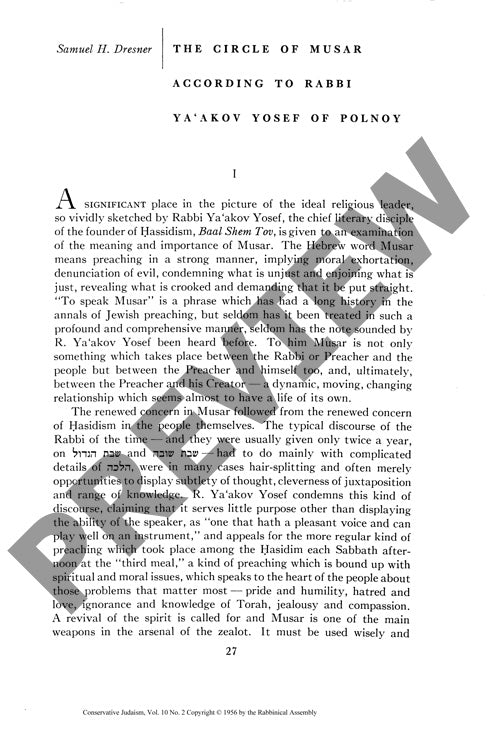The Circle of Musar According to Rabbi Y
Couldn't load pickup availability
In eighteenth-century Eastern Europe, a revolutionary approach to moral preaching emerged through Rabbi Ya'akov Yosef of Polnoyi, the Baal Shem Tov's chief literary disciple and founder of Hasidic literature. His comprehensive doctrine of Musar (moral exhortation) challenged the prevailing rabbinic discourse by criticizing both rabbis and maggidim (itinerant preachers) for prioritizing pilpul (dialectical argumentation) and financial gain over meaningful spiritual guidance. Through close analysis of his major works - Toldot Ya'akov Yosef, Tzafnat Paneach, and Ben Porat Yosef - a sophisticated theoretical framework emerges depicting Musar as both prophetic denunciation and pastoral care. Rabbi Ya'akov Yosef insisted that religious leaders must regularly address spiritual and moral issues rather than merely showcase intellectual prowess. His teachings reveal that effective Musar requires love and compassion, audience-specific adaptation, and crucially, that preachers must include themselves in their moral critique. The analysis uncovers a distinctive "circle of Musar" wherein responsibility for communal sin flows from the people to religious leaders and ultimately to God Himself. These findings illuminate both early Hasidic theology and the transformation of Jewish homiletical practice during a pivotal period of religious innovation.

More Information
-
Physical Description
-
Publication Information
Published 1956
ISBN
-
Publication Credits
Samuel Dresner

